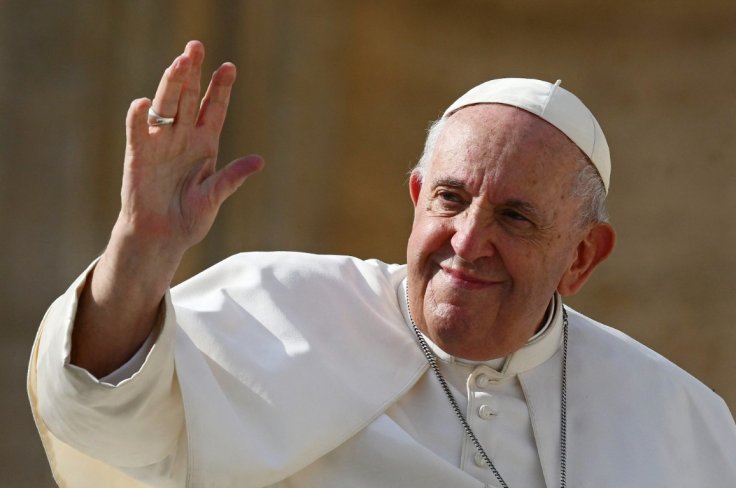Pope Francis has died, the Vatican announced on Monday morning. He was 88 years old. He was the first South American and first Jesuit to head the Catholic Church. The Pontiff spent the last 37 days of his life in Rome's Gemelli Hospital due to an infection that eventually developed into double pneumonia in both lungs.
During the prolonged hospitalization, the 88-year-old regularly required high levels of supplemental oxygen and, on at least one occasion, also had to undergo an emergency blood transfusion. The Conclave—where cardinals gather in the Sistine Chapel at the Vatican to select the next pope—will not take place for at least another 15 days.
Suffered but Passed Away Peacefully

Pope Francis' body will lie in state at St. Peter's Basilica during the official mourning period. Unlike the past Popes who were buried alongside their predecessors, Pope Francis will be laid to rest at the Basilica of Santa Maria Maggiore in Rome's Esquilino district.
Only yesterday, Francis had greeted crowds of Catholic worshippers who had assembled at St. Peter's Square for Easter Sunday. He delivered his traditional Urbi et Orbi blessing from a balcony after leading Mass for the Easter.
While on his way to the basilica, Francis briefly met with U.S. Vice President JD Vance, who was in Rome celebrating Easter with his family. The Vatican said that the meeting was brief, lasting only a few minutes.
Francis made history as the first pope from outside Europe in over 1,300 years when he was chosen to succeed the retiring Pope Benedict XVI.
Born Jorge Mario Bergoglio in Buenos Aires, Argentina, in 1936, Francis was the oldest of five siblings. According to his official Vatican biography, his father, Mario Bergoglio, was an accountant from Italy who fled the Piedmont region of Italy to escape Benito Mussolini's fascist regime.
Entire Life Dedicated to God's Service

Bergoglio was chosen as the Archbishop of Buenos Aires in 1998 and was selected as the cardinal by Pope John Paul II in 2001. As the cardinal, he managed several high-profile administrative roles within the Roman Curia.
One famous moment came during the 2001 Ordinary General Assembly, when Bergoglio stepped in for the iconic Cardinal Edward Michael Egan, who remained in New York in the wake of the September 11 terrorist attacks. Bergoglio left a lasting impression on the college of cardinals as the Relator Adjunct.
At the 2005 conclave that ultimately elected Pope Benedict XVI, Bergoglio was the runner-up in every round of voting, coming close to being chosen himself at the age of 68.
When Benedict XVI shockingly decided to resign in 2013—a move not seen since Pope Gregory XII stepped down to resolve the Western Schism—Bergoglio again emerged as the most eligible replacement, as he was widely viewed as a reform-minded leader capable of restoring credibility to a Church shaken by scandal.
He was chosen as the successor to St. Peter by the papal conclave on February 28, 2013, making him the first Jesuit to be elected pope. He chose the name Francis in tribute to the revered St. Francis of Assisi.
True to the spirit of his namesake, Pope Francis's time in office was marked by acts of humility and a deep concern for the poor.
His progressive stance and decisions also at times stirred controversy both within and beyond the Vatican. His liberal mindset saw him appointing several women to prominent roles in the Church's hierarchy and calling for greater compassion toward gay and divorced Catholics seeking to receive the Eucharist. However, he stopped short of endorsing gay and same-sex marriage.









